
Cristina Jiménez is a Latina trailblazer who shares her powerful journey as an undocumented immigrant. (Photo courtesy of Jiménez.)
From social justice organizer and author to panelist at the Raizado Festival, Cristina Jiménez is a Latina trailblazer who shares her powerful journey as an undocumented immigrant. In her latest book, “Dreaming of Home,” she shares a compelling story of a young woman discovering her true identity alongside the rise of a groundbreaking immigrant youth movement that inspired global change and transformed millions of lives.
Jiménez, who arrived in the United States from Ecuador as an undocumented immigrant at the age of thirteen, co-founded of United We Dream (UWD), a nationwide network of affiliated groups, organizations and individuals focused on addressing the needs of immigrant youth and families, in 2008 Through her leadership and vision, UWD united disparate groups around a common identity that shifted public perceptions of undocumented youth and focused attention on policy issues that affect them.
In addition to mobilizing political pressure, UWD works to address the needs of all immigrant youth, regardless of status. The organization also connects its work with that of other social justice movements and has forged alliances with LGBTQ, Black, and other racial justice and immigration reform communities.
The Raizado Festival takes place every year, bringing together Latina women from all over the world to celebrate each other. Founded by Mónica Ramírez in 2020 and launched in 2022, Raizado Festival is a project of Justice for Migrant Women. It was conceived in response to the erasure and undervaluing of Latina lives, especially in times of crisis.
CALÓ News recently sat down with Cristina Jiménez to discuss her journey growing up as an undocumented teen and adult and how those experiences have shaped the person and powerful advocate she is today.
Responses have been edited for clarity and brevity.
You’ll be at the Raizado Festival and speaking on the panel “On Welcoming, Belonging and Protecting.” How do these themes connect to the lived experiences of DACA recipients?
“I speak of dreaming of home in my book about the experience of growing up undocumented, which connects to the experience of many DACA recipients but also the experience of young immigrants that, after Trump terminated DACA, haven't been able to apply and are undocumented. Like many, I came with my family as a young person; I was 13 years old when we migrated in 1998, seeking a better life and fleeing poverty and political conflict in Ecuador.
When we landed in New York City, you know, it was a new place and it was really scary to be in a place where you didn't know the language or know the community and it was all new in the sense that I had when I was in Ecuador. That was like my home, like my physical home but also just like with my family and my friends, all of that vanished. As a young person and a newcomer, I felt very homeless in that sense.
And so I found a community of friends and educators in my high school who were immigrants from all over the world. In my high school we spoke over 70 languages and we were in a group of young immigrants from Latin American countries, but also China and Pakistan and Russia.
All of that made me feel at home and that we belonged because all of us were learning English, all of us had our accents, and all of us also shared dreams and stories that were similar to our parents, which was seeking a better life for their loved ones and their children, and also the majority of us dreamed of being the first ones in our family to get a college education. And, that for the first time made me feel like I belonged, like I was part of a community.”

Raizado Festival.
The Raizado Festival brings together leaders across culture, policy, and advocacy. What role do you think cultural spaces like this play in shaping the immigration conversation?
“As an undocumented immigrant from Latin America, being a Latina in this country, felt like something I wasn’t supposed to say out loud. Everything I saw on TV or heard people talk about made me feel ashamed of being an immigrant, of having an accent, and of not fitting the image of what people think an ‘American’ looks like. And that image usually means being White. For many, that’s still the standard of what it means to be American, and anyone who doesn’t fit that is seen as ‘other.’ You even see it today where, regardless of citizenship, people are getting racially profiled. Native American people and Latinos and Latinas that have lived in this country for a long time or that have been born here are still getting racially profiled and stopped and detained by ICE.
I share that and I speak about my experience, because I think that we grow up with so much shame about who we are, and some of this also comes from our countries too. The idea of colorism, or, like, who [is from] a better class, better race or [has] better skin color, and so I think that our cultural spaces are so important to share those fears and that sense of shame. And to find our pride in our culture, in our stories, in gatherings like Raizado, where we get to see people like me, people like us, thriving, being artists, sharing their stories, writing books, writing music, getting film and fighting for the rights of our community at the local level and at the leadership level. So in many ways, it's a place where we get to celebrate ourselves but also to model what's in our communities and to inspire people in our Latino/Latina community.”
The panel at Raizado will explore the state of immigration today. From your perspective, what is the most urgent shift we need in U.S. immigration policy right now?
“The two things that I would say are very important to know right now are that there is so much pain and terror in our communities that resources from the national government now have gone into the billions of dollars to boost up immigration enforcement and Border Patrol, to go after communities, and to separate people in our communities. We're talking about high schoolers that are getting detained, children that are getting targeted in their schools and parents that are getting detained and arrested after they drop off their kids at school.
Black and Brown folks, including Latinos and Latinas, are getting terrorized by our new policies. I do think it's important for us to be sober about what is happening and for our community to be able to make the connections that the current government is really trying to weaken our democracy and grow an authoritarian power by scapegoating immigrants, by painting immigrants as the problem and as the group of people that Americans should fear while they're destroying the democracy and the democratic institutions in this country by ignoring Supreme Court decisions and ignoring the courts and by taking away [the] rights of people.

This year’s event will once again spotlight the cultural force of the Latine community by uplifting its truth, culture, and power.
It's really important to understand what we're up against and to unite and to come together to ask our representatives for policy solutions that are permanent, that provide a pathway to citizenship for people in this country and transform the immigration system. To one that dignifies the work of immigrants whose labor this country needs but that also dignifies American workers. All of that is possible if we get beyond politics, if both parties actually want to work on a solution. I truly believe that it's possible for us, including Latinos, Latinas, immigrants and everyone, so that we can have a multiracial democracy in this country.”
In your new book, “Dreaming of Home: How We Turn Fear into Pride, Power, and Real Change”, you reflect on themes of identity, resilience and the immigrant experience. As you join audiences at Raizado this year, what insights from your journey and your book are you most excited to share?
“You know, the most important message from ‘Dreaming of Home’ is the journey of transformation that I believe all of us can go through, especially for anyone out there at the Reizado Festival or anyone in the country who in this moment feels really afraid and uncertain about what's happening, and that all the things that are happening may make us feel like we're powerless.

Dreaming of Home is a coming-of-age story for both a young woman finding her true self and a social movement of immigrant youth trailblazers who inspired the world and changed the lives of millions.
‘Dreaming of Home’ reminds us that we have power, and we can tap into our power individually and, most importantly, tap into our power collectively to create change and to create a country that we want to see. And I tell the story of how we can make this possible through my own journey as someone who grew up undocumented and very afraid of my status and very ashamed of it and who lived in fear of deportation and fighting, from then finding my voice and becoming a community organizer and then a leader in building the immigrant youth movement.
I was able to do all of that because I found a community of organizers and immigrant youth who were courageously fighting against deportations in the early 2000s and demanding the right of undocumented students to go to college, and that transformed my life and it made me and it made me really see how when we come together collectively. We could create change. Like, that's how we were able to win programs like DACA.”
In moments of uncertainty, such as the legal challenges to DACA, how can gatherings like the Raizado Festival provide hope and momentum?
“I think that when we come together, we are more powerful and I think that Raizado is that place and that hope that our community needs, where you have Latinos and Latinas from different backgrounds and different sectors coming together to build relationships, to get to know one another, to support each other in endeavors and projects and work that we are driving, but to also talk about how, as Latinos and Latinas, we continue to not only hold space and create space but also lead and inspire new generations of people coming after us.

Founded by Mónica Ramírez in 2020 and launched in 2022, Raizado Festival is a project of Justice for Migrant Women.
Gatherings like this also help people like me to find new possibilities, and I know that my story and the story of “Dreaming of Home”, the story of the immigrant youth movement, and the panel where we're going to be talking about DACA and many other issues will inspire others to see possibility in themselves and in their communities of what we can achieve when we come together.”

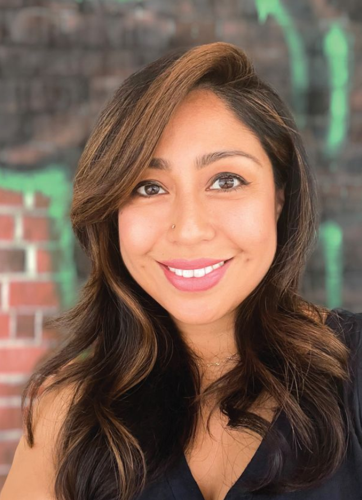
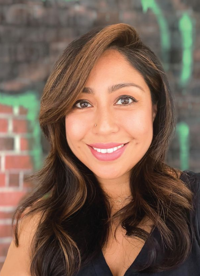
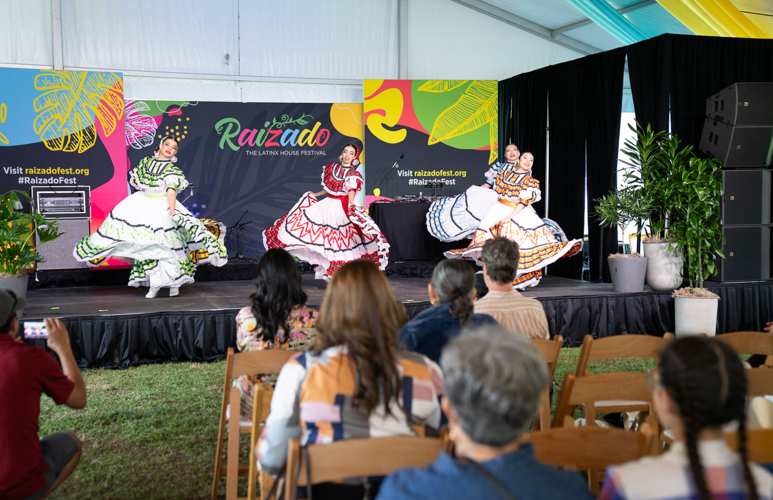
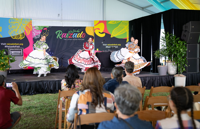
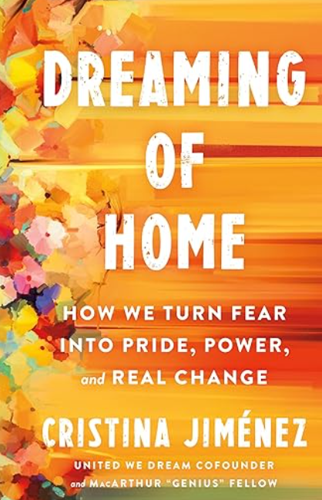
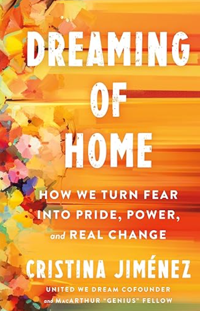
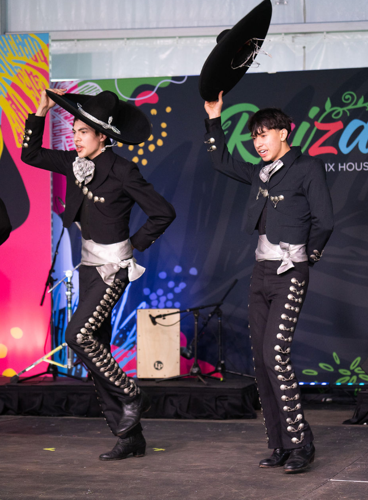
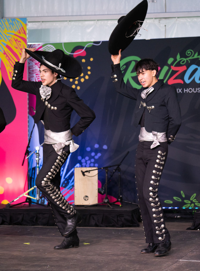
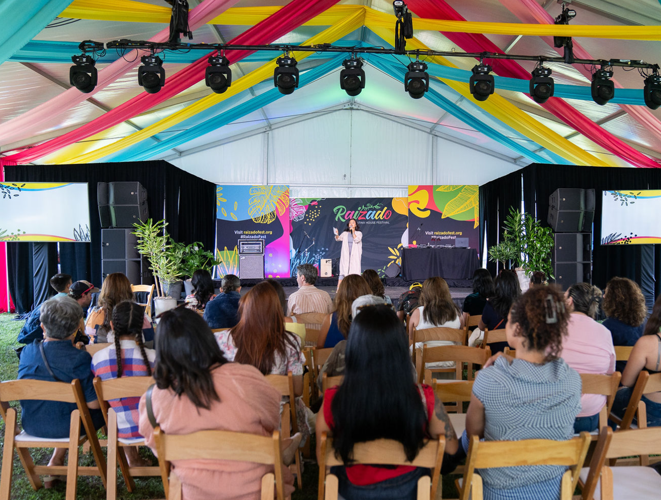
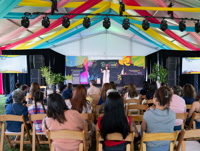

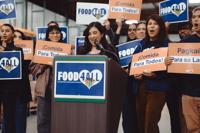

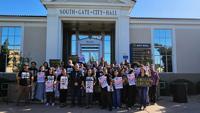




(0) comments
Welcome to the discussion.
Log In
Keep it Clean. Please avoid obscene, vulgar, lewd, racist or sexually-oriented language.
PLEASE TURN OFF YOUR CAPS LOCK.
Don't Threaten. Threats of harming another person will not be tolerated.
Be Truthful. Don't knowingly lie about anyone or anything.
Be Nice. No racism, sexism or any sort of -ism that is degrading to another person.
Be Proactive. Use the 'Report' link on each comment to let us know of abusive posts.
Share with Us. We'd love to hear eyewitness accounts, the history behind an article.